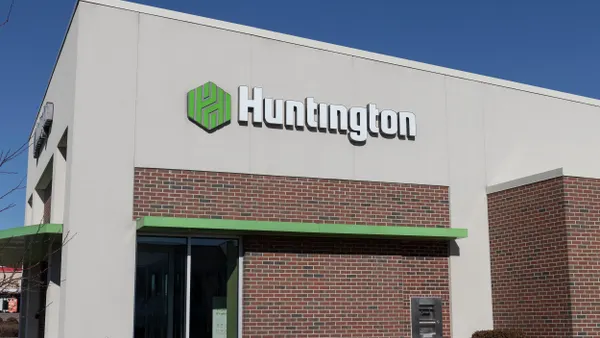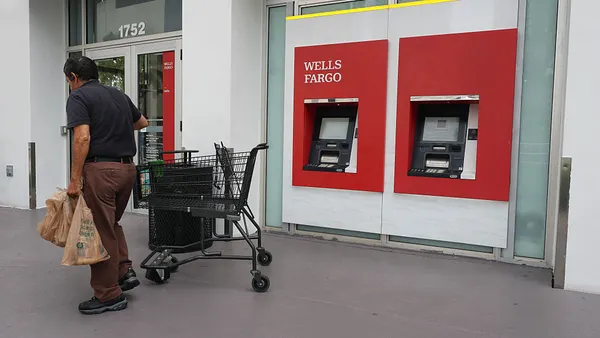Dive Brief:
-
The Independent Community Bankers of America (ICBA) and the Community Bankers Association of Georgia (CBA) urged the Federal Deposit Insurance Corp. (FDIC) to reject the proposed acquisition of Heritage Southeast Bank by VyStar Credit Union, saying the deal would cut regulatory safeguards for low- and moderate-income consumers, the two groups wrote in a letter Saturday.
-
Jacksonville, Florida-based Vystar announced last month that it had agreed to purchase Jonesboro, Georgia-based Heritage for $195.7 million.
-
If approved, the acquisition would make VyStar the 13th-largest credit union in the U.S., with $12.5 billion total assets, 88 branches and a membership of more than 850,000 customers, according to the credit union.
Dive Insight:
ICBA President Rebeca Romero Rainey accused VyStar Credit Union of leveraging its tax exemption for what would be the largest-ever credit union acquisition of a bank.
"The dated credit union tax exemption and faulty National Credit Union Administration oversight again threaten to claim another local institution while reducing loans and investments benefiting low- and moderate-income consumers," Rainey said in a statement.
In a joint letter to FDIC Regional Director John Henrie, the ICBA and CBA called out VyStar’s history of closing branches, as well as credit unions’ exemption from the Community Reinvestment Act (CRA).
"VyStar has either closed, moved, sold or consolidated half of the branches acquired from the Citizens State Bank transaction," the trade groups wrote, referencing the credit union's 2019 purchase of the Perry, Florida-based bank.
"The VyStar acquisition of Heritage Southeast Bank will substantially decrease Community Reinvestment Act loans and further branch consolidation in Georgia, harming low- and moderate-income consumers in our communities," CBA President and CEO John McNair said. "We strongly urge the FDIC to reject this merger application."
American Bankers Association (ABA) President Rob Nichols also weighed in on the trend of credit unions purchasing banks.
In a letter to the leaders of the House Financial Services and Senate Banking Committees on Thursday, Nichols said VyStar’s transaction "highlights in stark terms the changing face of the nearly $2 trillion credit union industry."
"Over the years, several growth-oriented credit unions have become indistinguishable from traditional tax-paying banks — while continuing to enjoy an exemption from federal and most state income taxes, lighter regulation, and no federal community reinvestment obligations to support the needs of low- and moderate-income communities," he wrote.
Nichols called on Congress to review credit unions’ tax exempt status, as well as engage and determine whether credit union acquisitions of banks meet the public policy goals Congress intended.
"We believe any thoughtful review will lead lawmakers to firmly conclude that it is time for Congress to make the changes needed to return credit unions to their original mission or at least end their outdated tax exemption," he wrote.
The National Association of Federally-Insured Credit Unions (NAFCU) shot back at the ABA’s statements, calling the trade group’s letter to Congress misleading.
"The ABA continues to misrepresent the facts on these types of transactions," NAFCU President and CEO Dan Berger said in a statement Friday. "First and foremost, it is important to recognize that bank-credit union mergers are voluntary, market-based transactions that require a community bank's board of directors to vote on selling to a credit union. These are not ‘hostile’ takeovers. … Perhaps, ABA’s concerns would be better addressed by sending a letter to their members asking why they are choosing credit unions over banks."
Credit unions bought 16 banks in 2019, an acceleration from nine the previous year. That number dropped to seven in 2020.
The ICBA launched a campaign amid the trend’s acceleration in late 2019, and last year sought a Government Accountability Office study on the evolution of the credit union industry and NCUA supervision.













